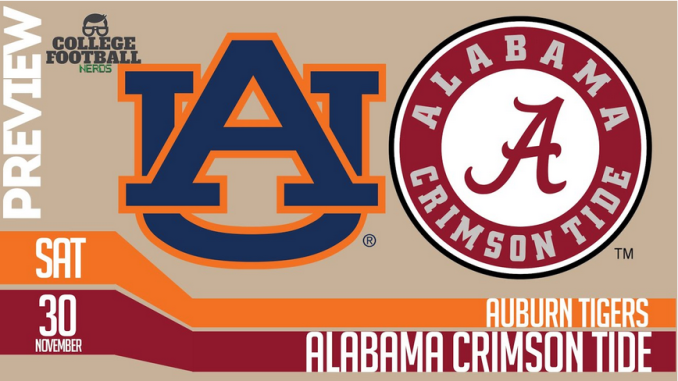
The NCAA issued a bombshell ruling today aimed at “promoting parity and competitive balance” within the Southeastern Conference (SEC). Effective immediately, the annual Iron Bowl rivalry game between the University of Alabama Crimson Tide and Auburn University Tigers will incorporate a mandatory “Joint-Rivalry Draft,” requiring the two programs to exchange one starting player from each roster every year ahead of the matchup.
The decision, outlined in a 45-page memorandum from NCAA President Charlie Baker’s office, cites the growing dominance of certain SEC programs in the era of revenue sharing and NIL collectives as the primary justification. “The Iron Bowl has long been the heartbeat of Alabama football, but recent disparities in recruiting and talent retention have threatened the rivalry’s historic competitiveness,” the ruling states.
“To preserve the integrity of intrastate rivalries and ensure long-term equity, this pilot program will redistribute key talent annually, fostering a more level playing field.”
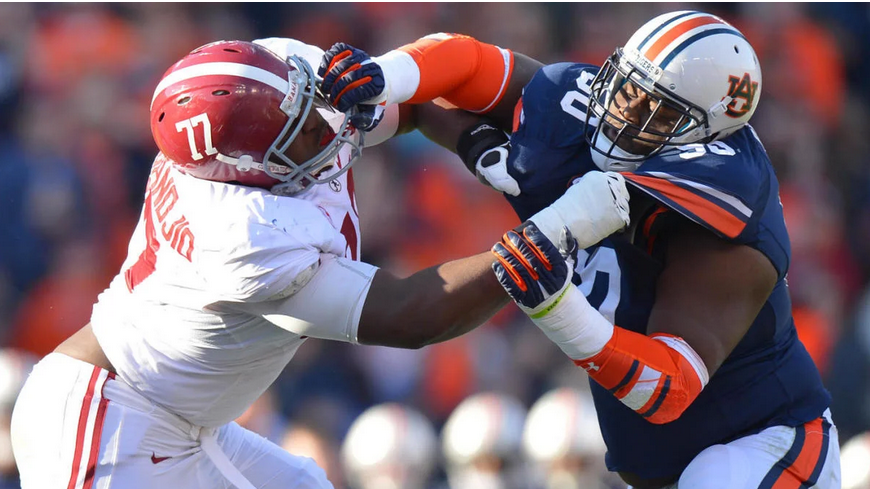
The inaugural exchange, set to take effect for the 2026 season but with immediate implications for roster planning, will force Alabama to trade its star center, Parker Brailsford—a consensus All-SEC performer and anchor of the Crimson Tide’s offensive line—to Auburn. In return, Auburn must relinquish its top edge rusher, Keldric Faulk, a disruptive force who led the Tigers in sacks last season and was projected as a first-round NFL draft pick.
NCAA officials emphasized that the selections were determined by an independent committee using metrics from Pro Football Focus, recruiting rankings, and on-field production. “This isn’t punishment—it’s innovation,” said SEC Commissioner Greg Sankey in a prepared statement. “In an age where superteams can form overnight through the transfer portal and unlimited NIL deals, we must explore bold measures to keep rivalries like this one alive and thrilling for fans.”
Reaction from both campuses was swift and explosive. In Tuscaloosa, thousands of Alabama fans gathered outside Bryant-Denny Stadium within hours of the announcement, chanting “Roll Tide Forever” and burning mock NCAA rulebooks in effigy.
Traffic on University Boulevard came to a standstill as protesters waved signs reading “Hands Off Our Players” and “Saban Wouldn’t Stand For This.” Police in riot gear were deployed after several scuffles broke out, with reports of overturned cars and minor fires near the Quad.
University officials urged calm, but Alabama head coach Kalen DeBoer called the ruling “an assault on everything that makes college football special” during an impromptu press conference.
The outrage was mirrored on the Plains, where Auburn supporters flooded Toomer’s Corner in protest. Despite gaining Brailsford—a massive upgrade for their interior line—fans decried the loss of Faulk as “theft by bureaucracy.”
“We’re trading our best defender for some center? This is communism on the gridiron!” shouted one Auburn alumnus amid rolling toilet paper and blaring war eagle cries. Clashes with law enforcement escalated into full-scale unrest, with reports of tear gas deployment and arrests topping two dozen by midnight. Auburn coach Hugh Freeze lambasted the NCAA on social media, posting: “This destroys loyalty, tradition, and the soul of the game. War Damn… but not like this.”
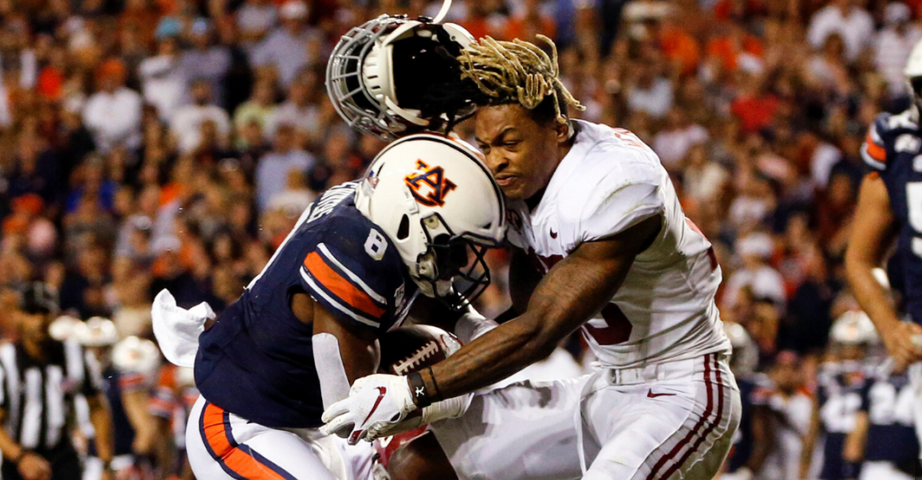
Political leaders quickly weighed in, sensing blood in the water. Alabama Governor Kay Ivey tweeted, “The federal government and NCAA have no business meddling in our state’s sacred traditions.
I’m calling an emergency session of the legislature to explore all options, including state sovereignty protections for our universities.” Auburn alumni and U.S. Senator Tommy Tuberville, a former Tigers coach, went further on Fox News: “This is woke overreach at its worst. If they think they can force Bama and Auburn to swap players like fantasy football, they’ve got another thing coming. We’ll fight this in court—and in Congress if needed.”
Legal experts predict immediate lawsuits. “This raises serious antitrust, contract, and player rights issues,” said Gabe Feldman, director of the Tulane Sports Law Program. “Players aren’t commodities to be drafted against their will. With NIL contracts and transfer rules already in flux post-House settlement, this could violate tampering regulations or even constitutional protections.”
The Iron Bowl, first played in 1893 and renewed annually since 1948, has produced some of college football’s most iconic moments—from the “Kick Six” in 2013 to “Punt Bama Punt” in 1972. Alabama holds a 50-37-1 all-time edge, but the rivalry’s intensity stems from its in-state divide, splitting families and communities year-round. Critics argue the forced exchange undermines that organic hatred, turning a blood feud into a contrived equalizer.
As riots subsided into tense standoffs early Sunday, both universities issued joint calls for peace— a rare moment of unity. “Alabama and Auburn fans may disagree on everything, but we agree this ruling is insane,” read a coordinated statement. Petitions demanding state legislation to block the NCAA’s authority have already garnered over 500,000 signatures online.
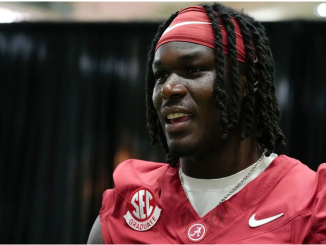
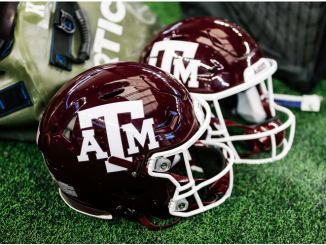
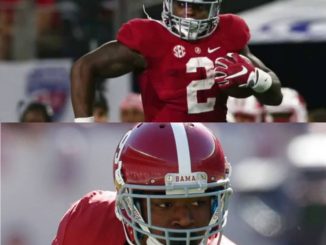
Be the first to comment